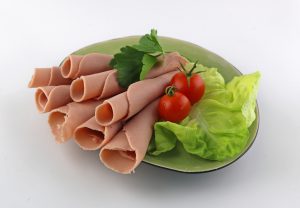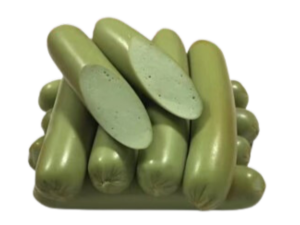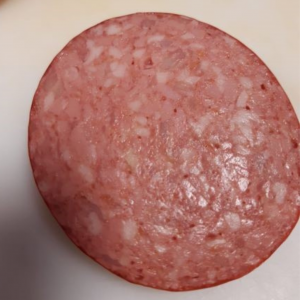Sausage snacks
The main growth factor for the ready-made sausage products market is the changing consumption behaviour of consumers. For example, sausages are more often eaten with drinks, or in between meals as snacks. Salami is used as an umbrella term for a variety of cooked, smoked or cured sausages.
As a product- en recipe developer Johan likes to use his product and process knowledge to translate product briefings into innovative concepts and new and improved products that meet the set quality requirements.
Please allow Johan to explain several sausage types, this to help you to decide which products you would like to make.
Salami without cultures
Making salami without a starter culture is possible. This traditional method of preparing meat existed long before starter cultures were widely available for purchase. By not adding starter cultures, you rely entirely on the bacteria that already exist in the salami.
It’s important to choose fresh meat since it reduces the chances of the meat being infected with bacteria. Note that the meat of a healthy animal does not have bacteria.
Hence, it’s essential to make sure you handle the meat properly.
The sooner you process the meat, the better because this lowers the risk of contamination. Of course, it’s not possible to eliminate bacteria, but it is crucial to reduce the risk as much as possible. You add salt and sugar to the meat. You should also add curing salt (which has sodium nitrate), a preservative that will destroy the harmful bacteria in your salami and keep the meat safe.
Cotto salami (cooked salami):
Cotto is the Italian word for cooked, and cotto salami is distinguished from other types of salami because it is, in fact, brought up to a high temperature during the preparation process.
Cooked salami
Cooked salami is, as the name suggests, is not a cured sausage. So, it’s not a traditional salami as you know it. The cooked salami is a flavourful scalded sausage
Calpas is the Japanese semi-dry sausage that has its roots in a Russian sausage called “Kolbasa”. Calpas is made from ground meat, such as pork, beef, and chicken, or a mixture of these ground meat.
Cabanossi/Kabanos/Kabana/Kabanosy
Kabanosy is a famous Polish sausage. The name comes from the nickname “kabanek” given to a young fat pig no more than 120 kg in weight, which was fed mainly potatoes in the Eastern parts of XIX Poland, known today as Lithuania. The sausage was traditionally stuffed into 22 mm sheep casings (nowadays alginate casing is very popular as casing for Kabanosy) and would become much thinner due to the loss of moisture during smoking, baking and drying. What distinguished Kabanosy from other sausages was that after smoking they were baked in smokehouse and not cooked in water. This resulted in an additional loss of moisture and the sausage became stable even at room temperatures. In about 1-2 weeks it would become a dry meat stick. According to Polish official standards nutmeg and caraway are dominant spices.
Bifi original
Bifi is a brand of meat snacks owned by Jack Links (USA). Up to this day, the meat snacks are still manufactured in the original facilities of “Schafft Fleischwerke” in Ansbach, Germany.
Pepperoni
Pepperoni also known as pepperoni sausage, is an American variety of salami. Traditional pepperoni is a dry sausage, smoked, air dried, sometimes cooked. Pepperoni can be made from beef, pork or a combination such as 30% beef and 70% pork. Pepperoni is a lean sausage with fat content < 30%. Cheaper, fast-fermented (semi-dry) and cooked types end up as toppings to pizzas worldwide to give flavour. Traditionally made Italian pepperoni was not smoked.
Peperami
Peperami is the BIFI in UK and Republic of Ireland. Is a brand of meat snacks owned by Jack Links (USA)?
Salami snack
Sticks
Origin: The Netherlands. Main ingredients: lean pork. Additives: white pepper, coriander, mace, mustard, sugar, brine salt.
Slim JIM meat stick
Slim Jim is an American snack brand sold globally and manufactured by Conagra.
Overview snack type of salamis in Dutch supermarkets:





